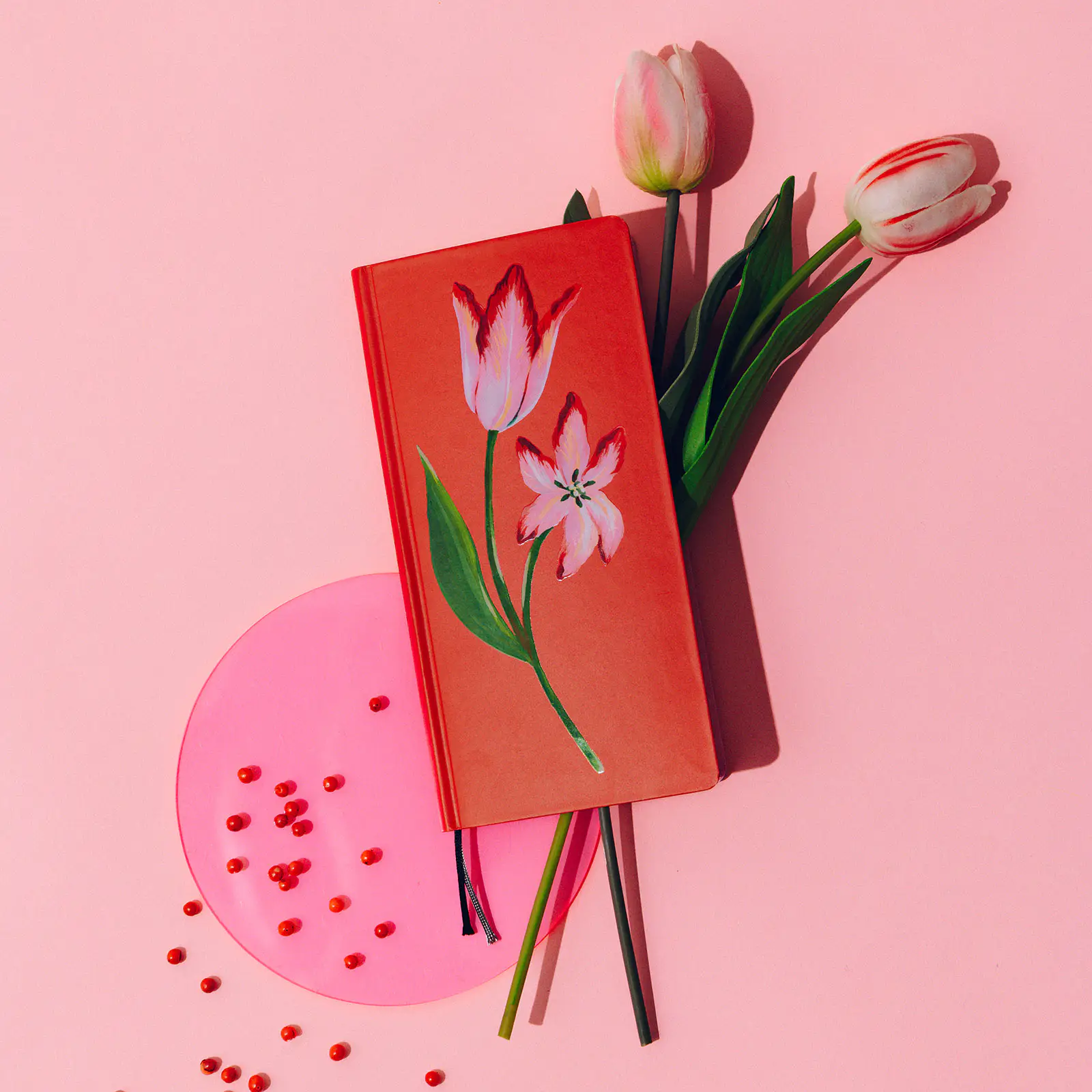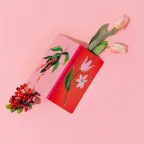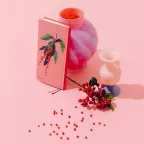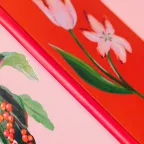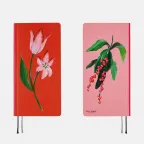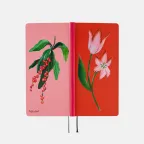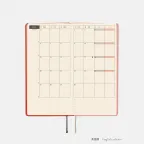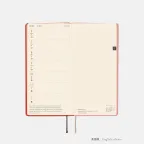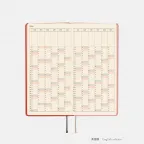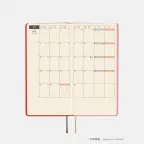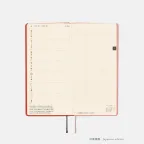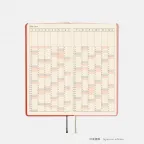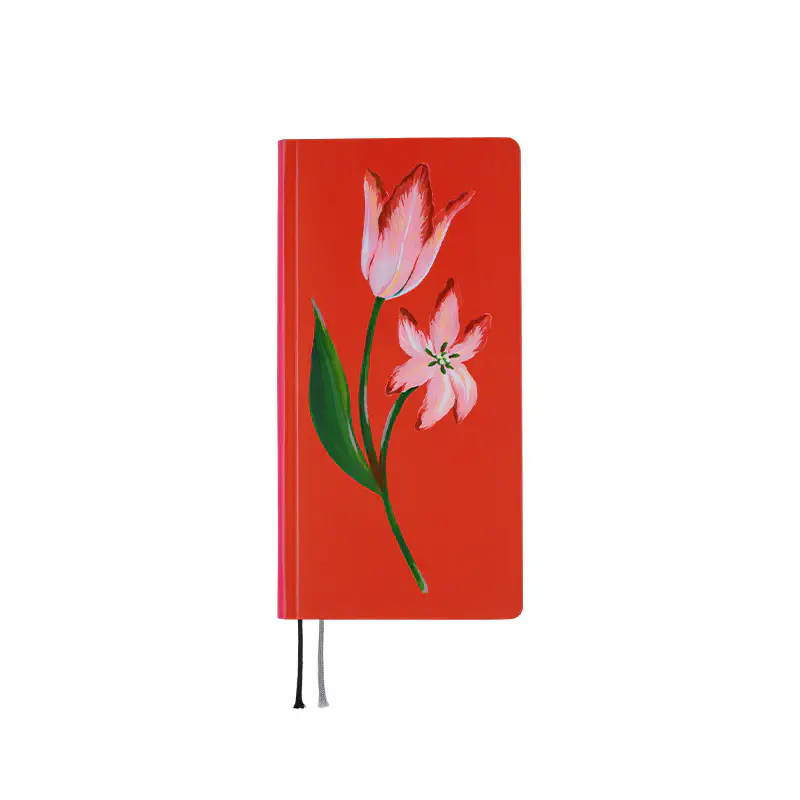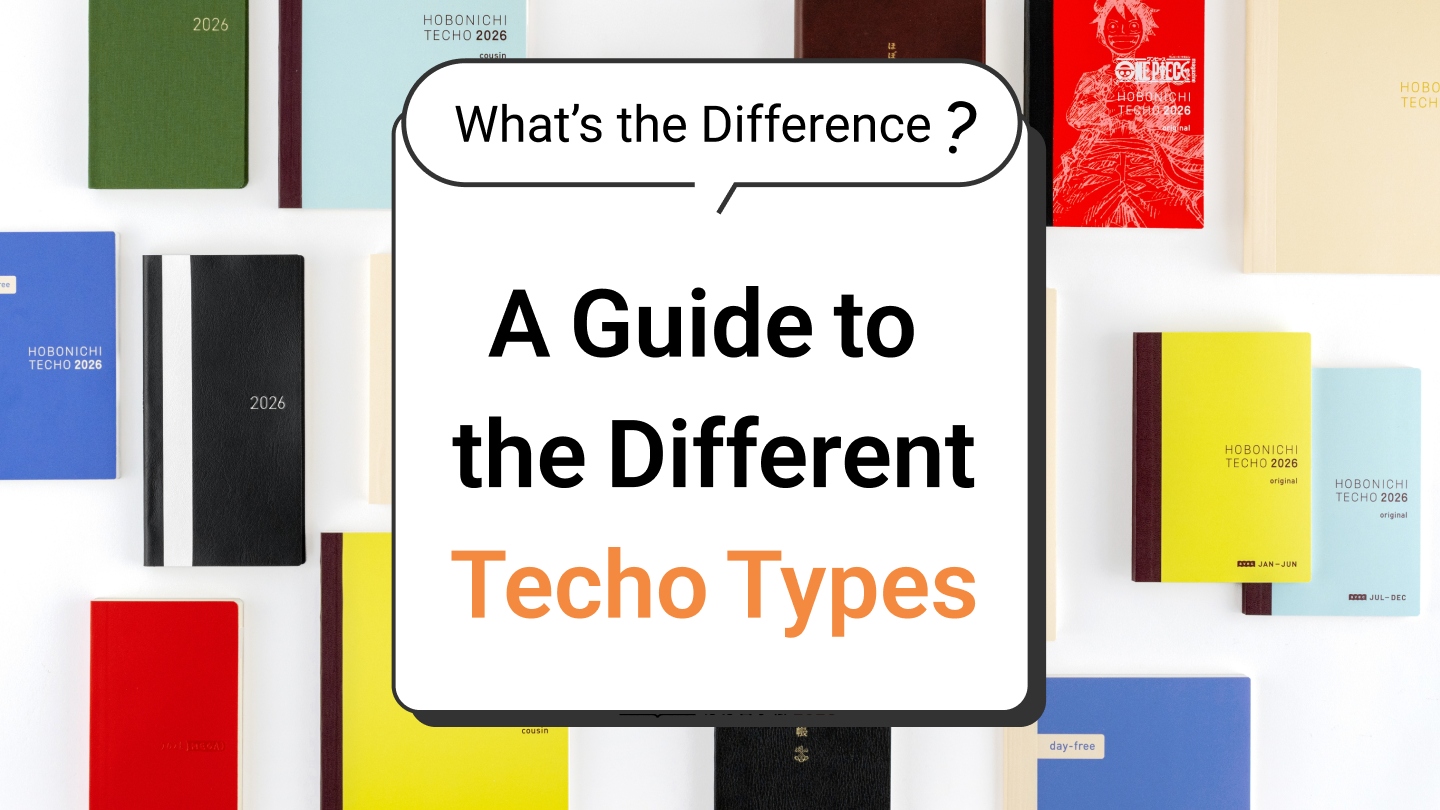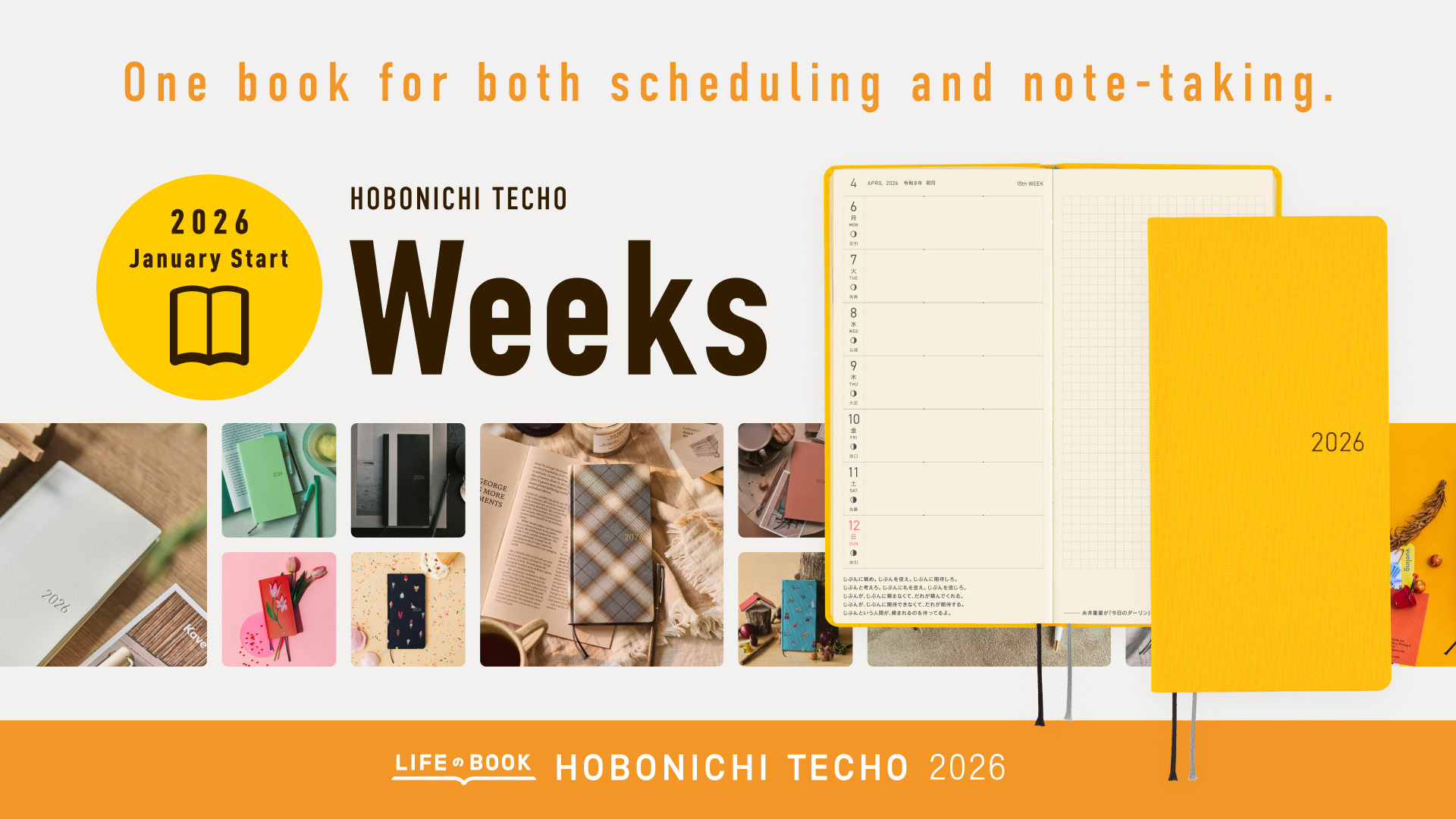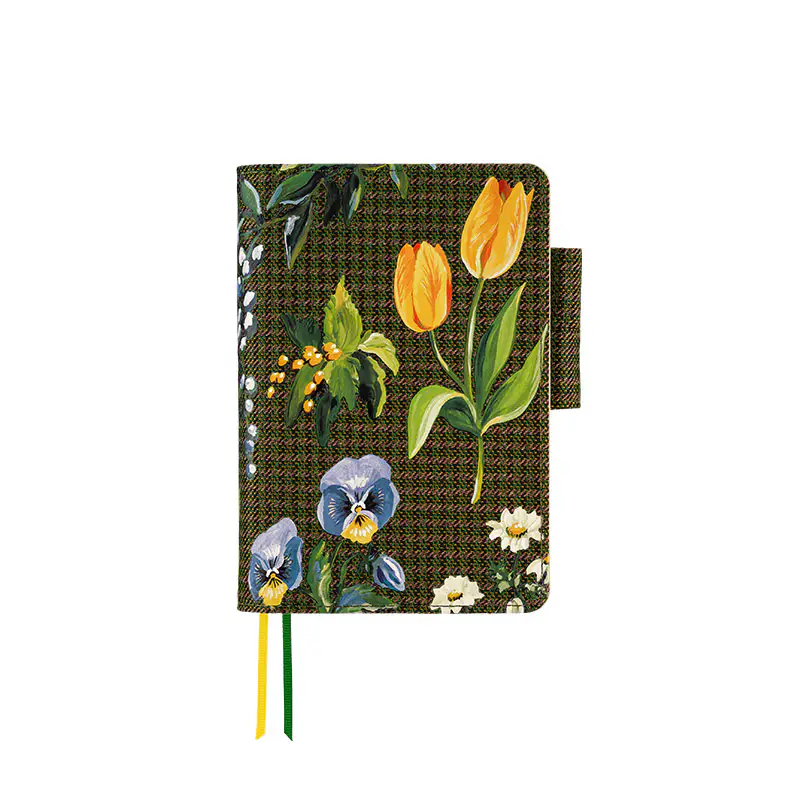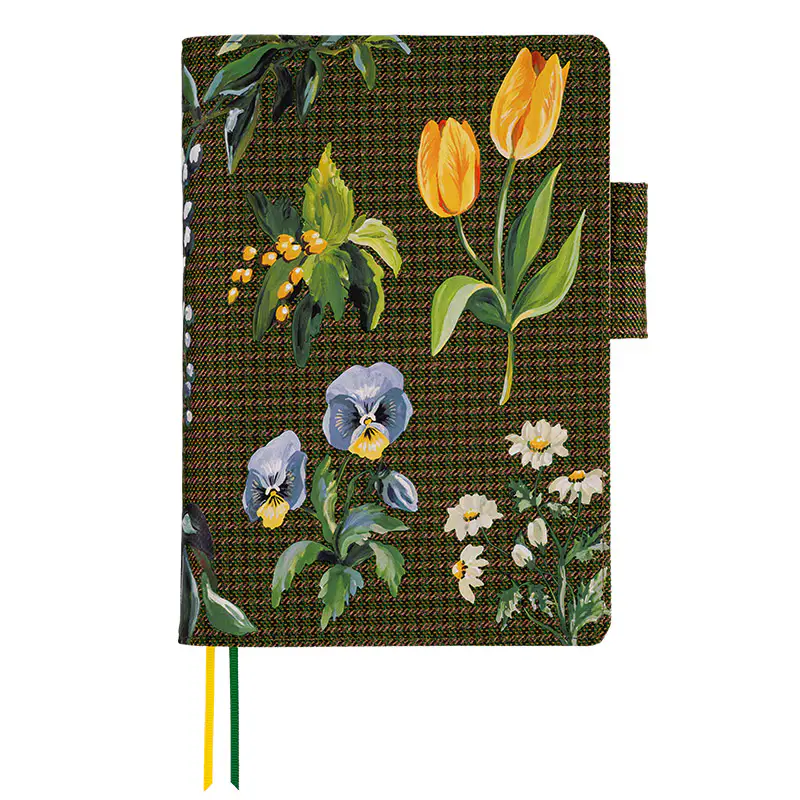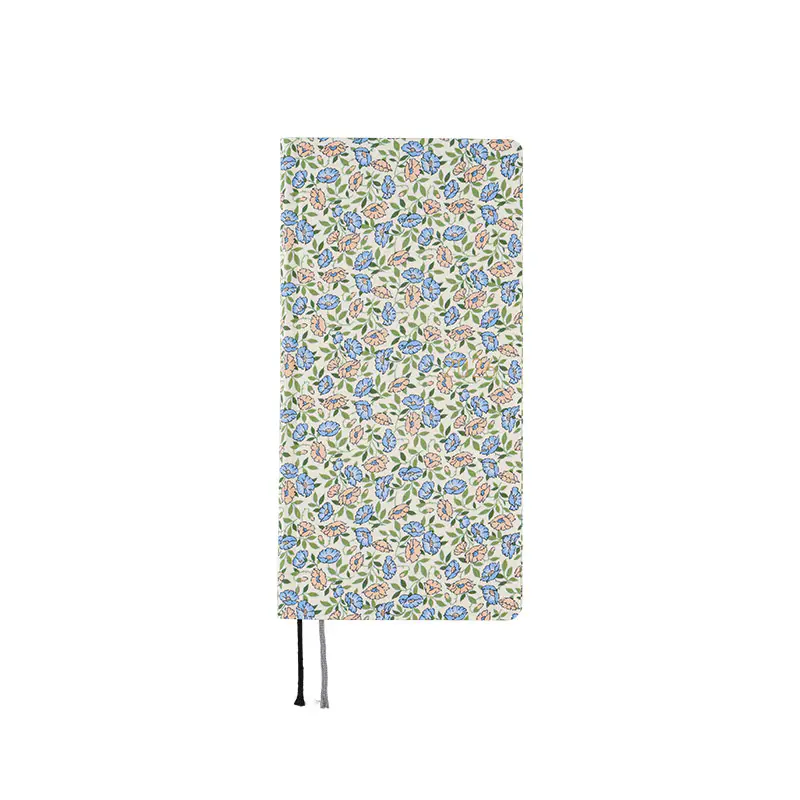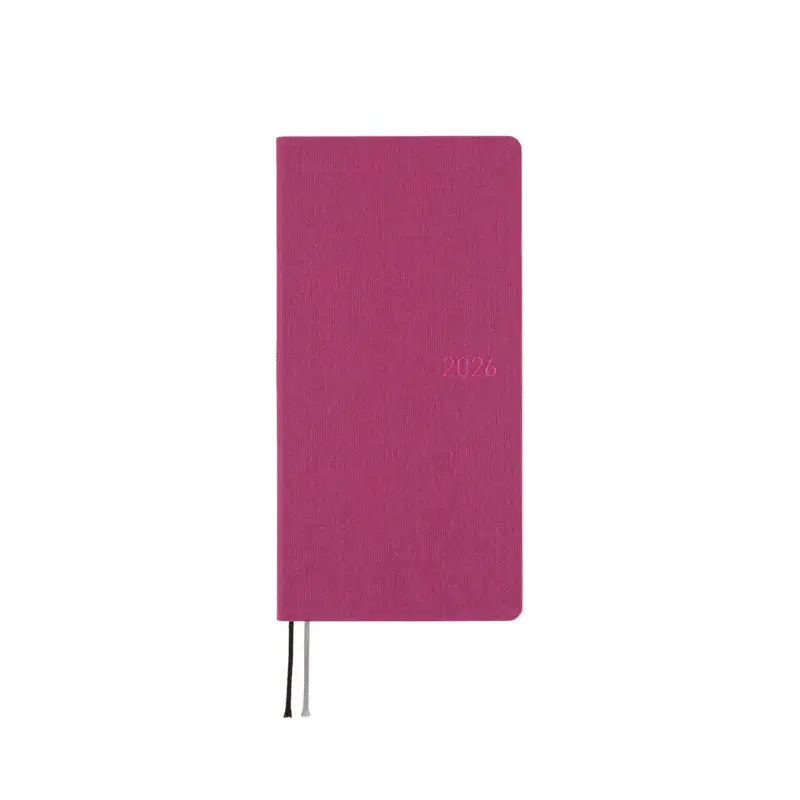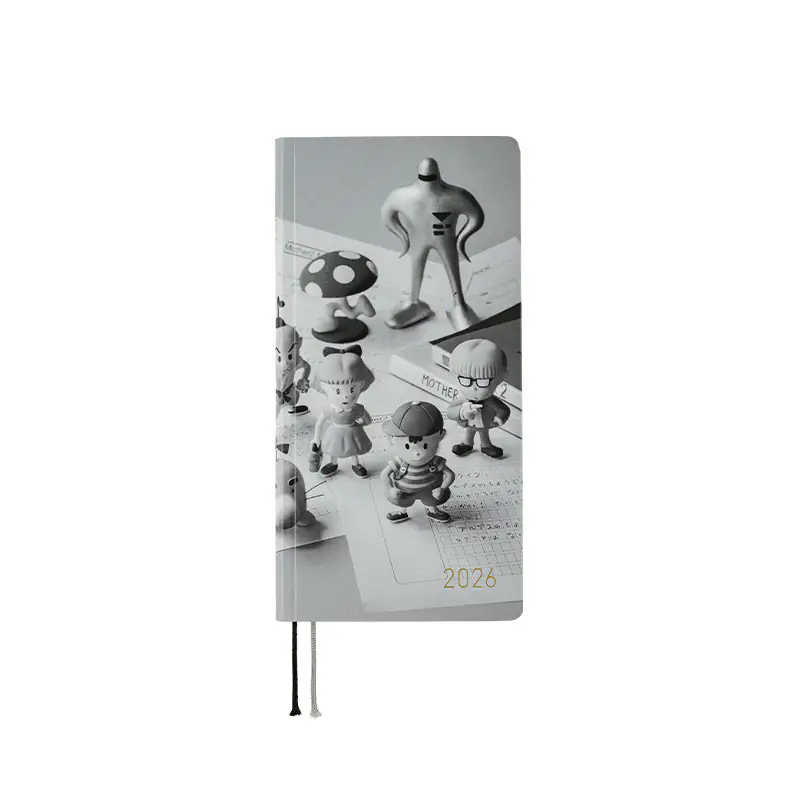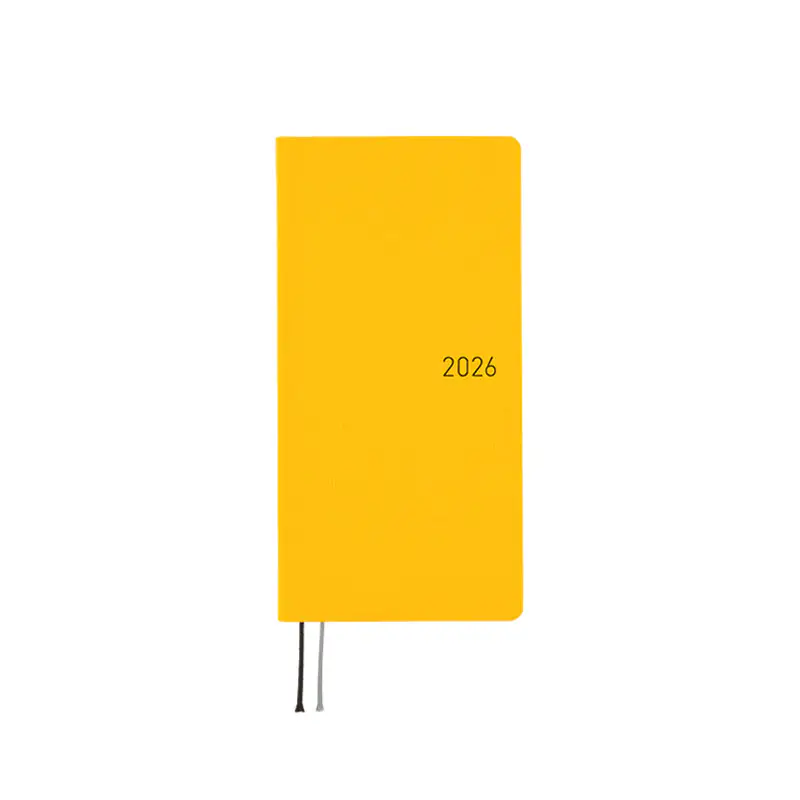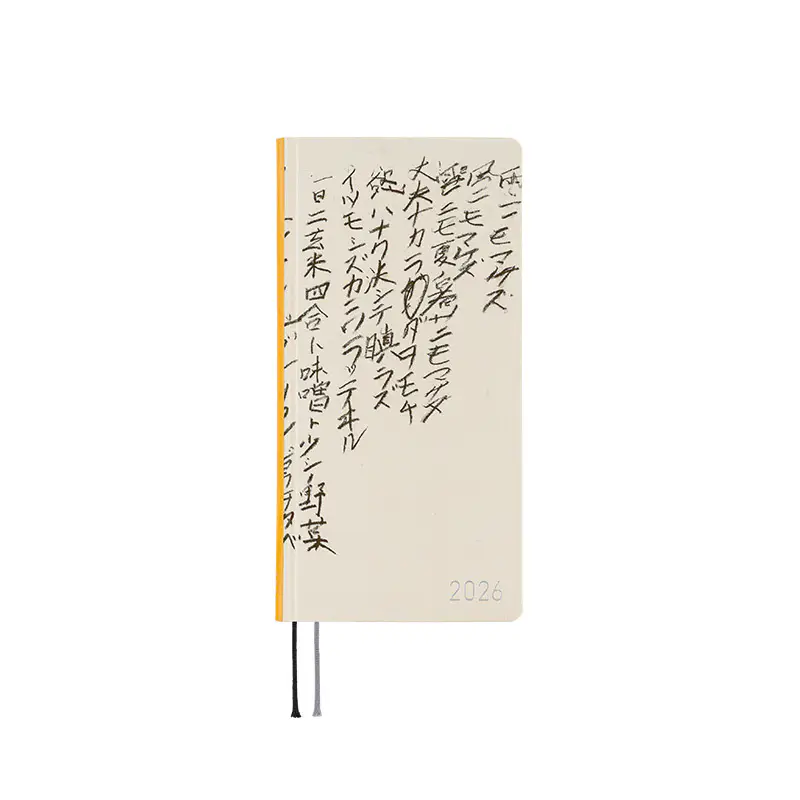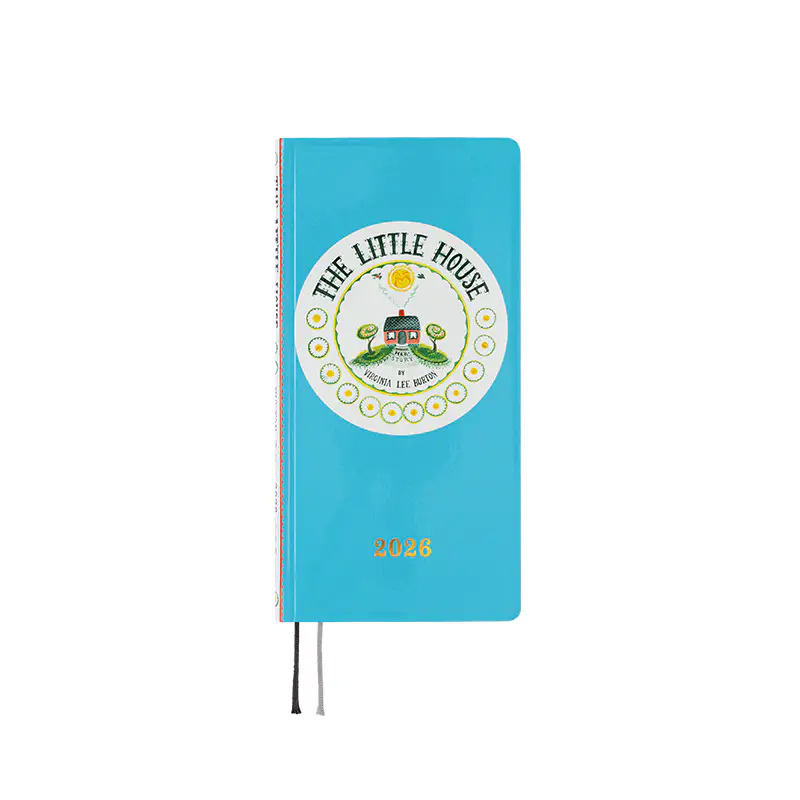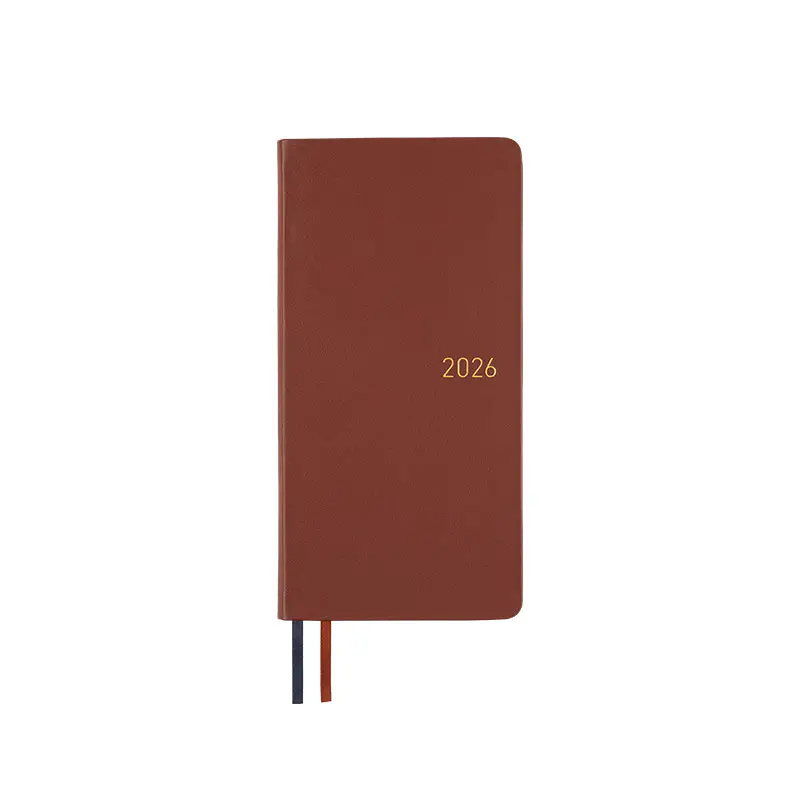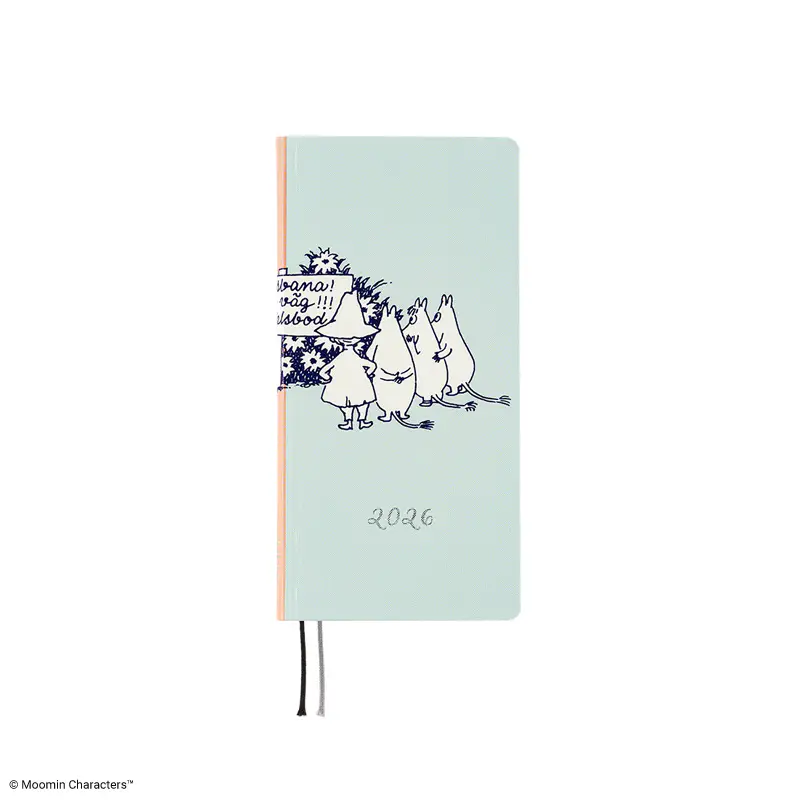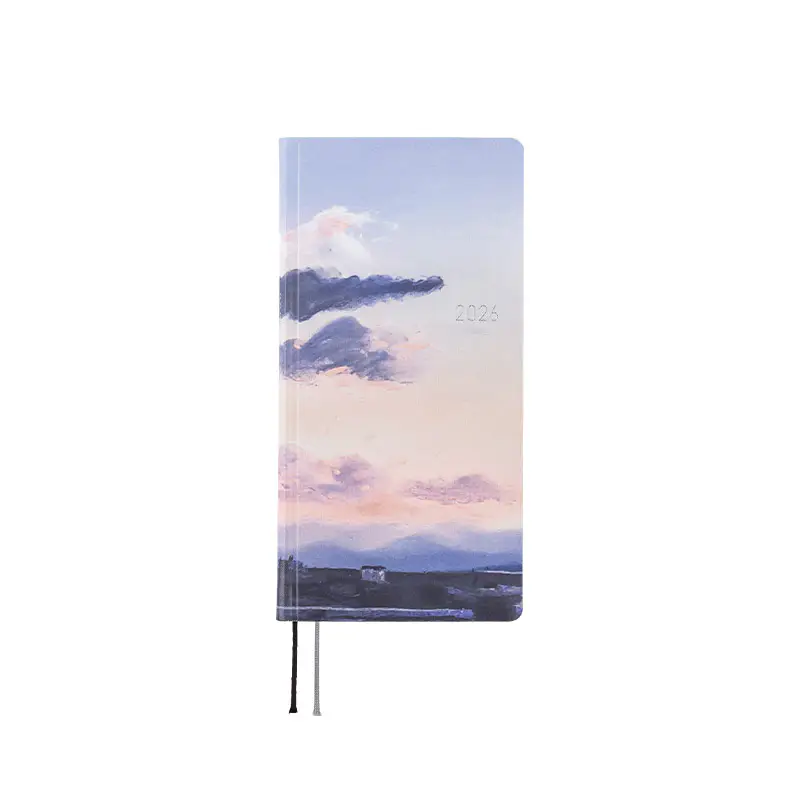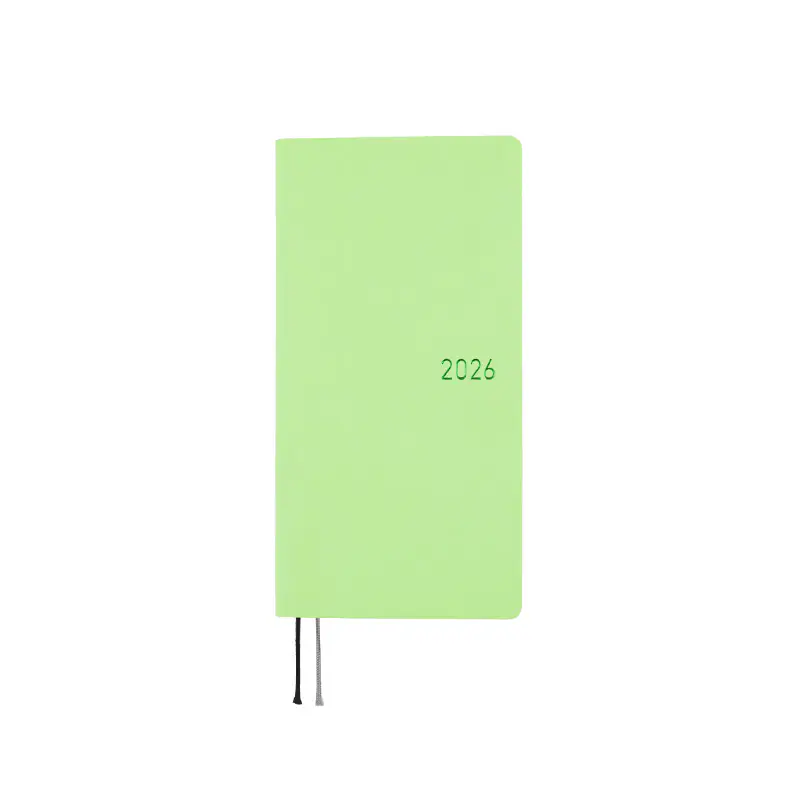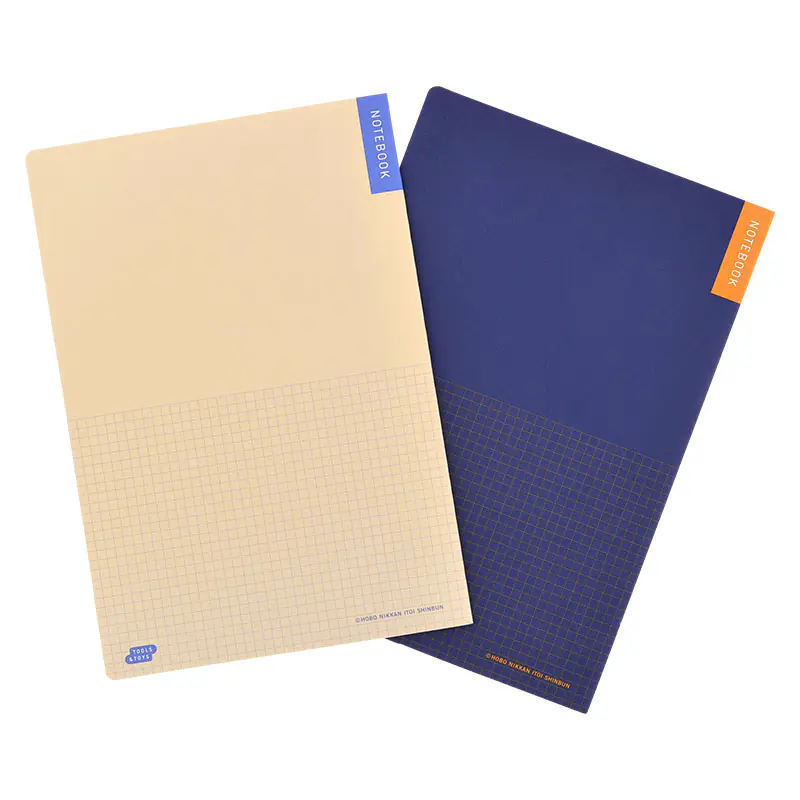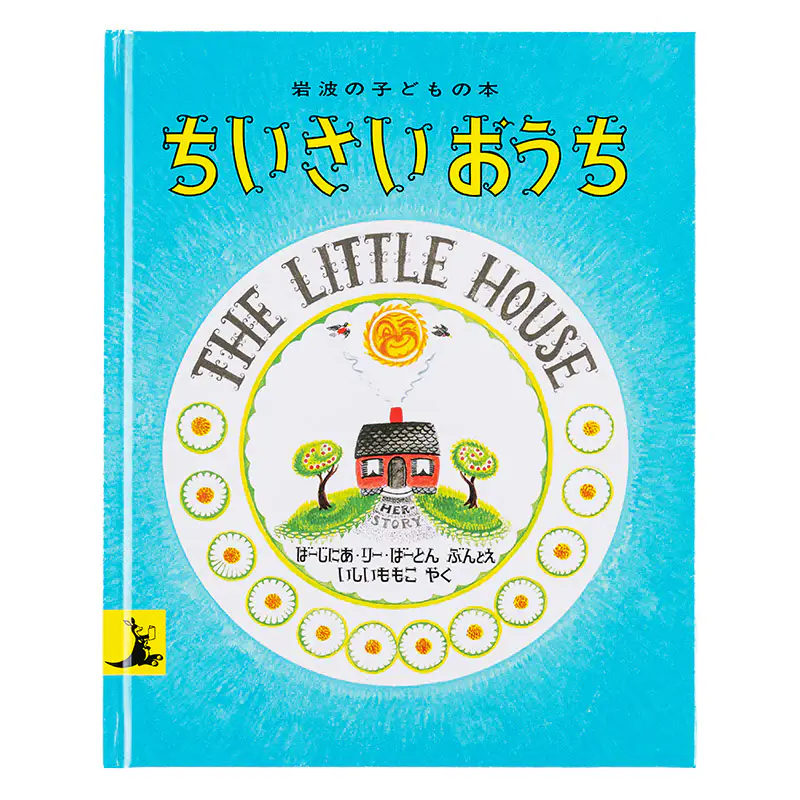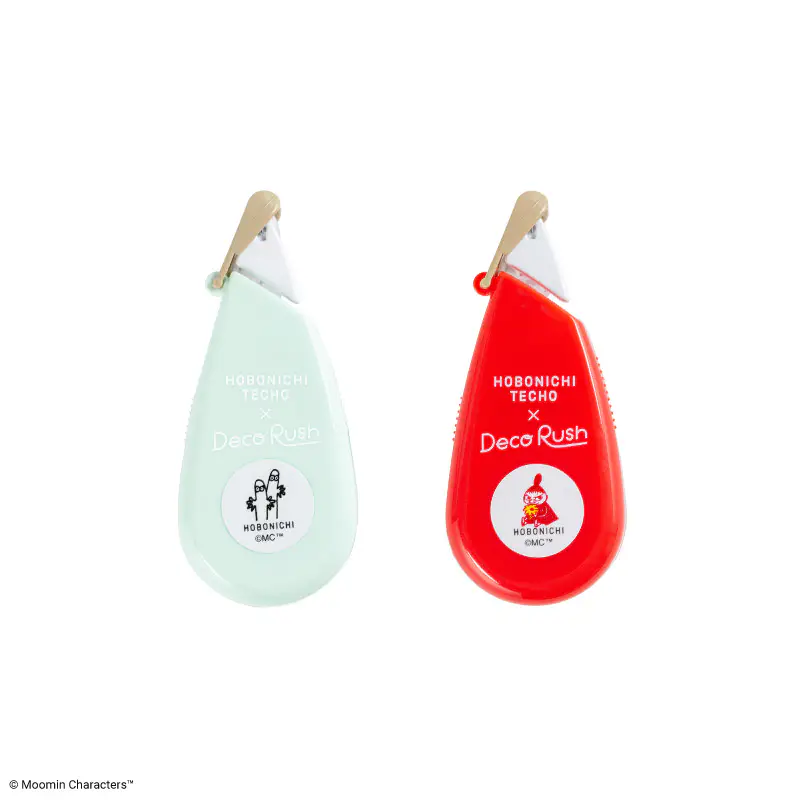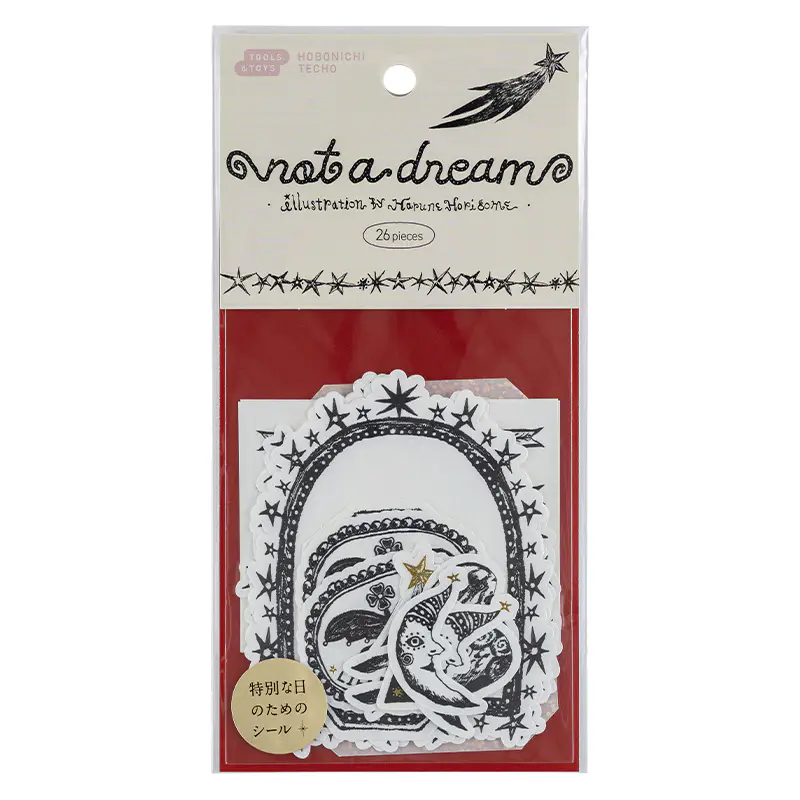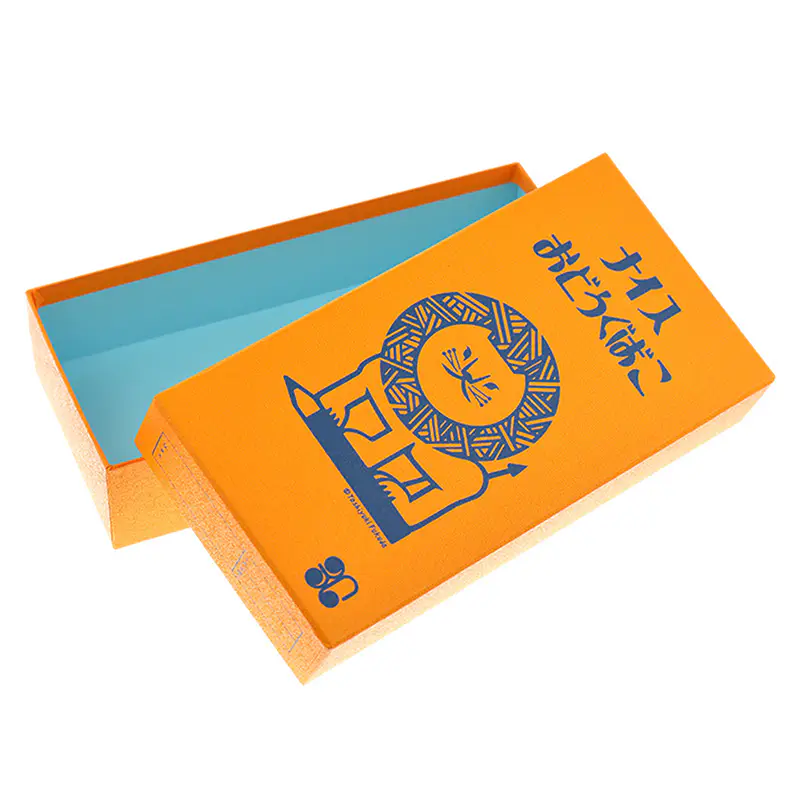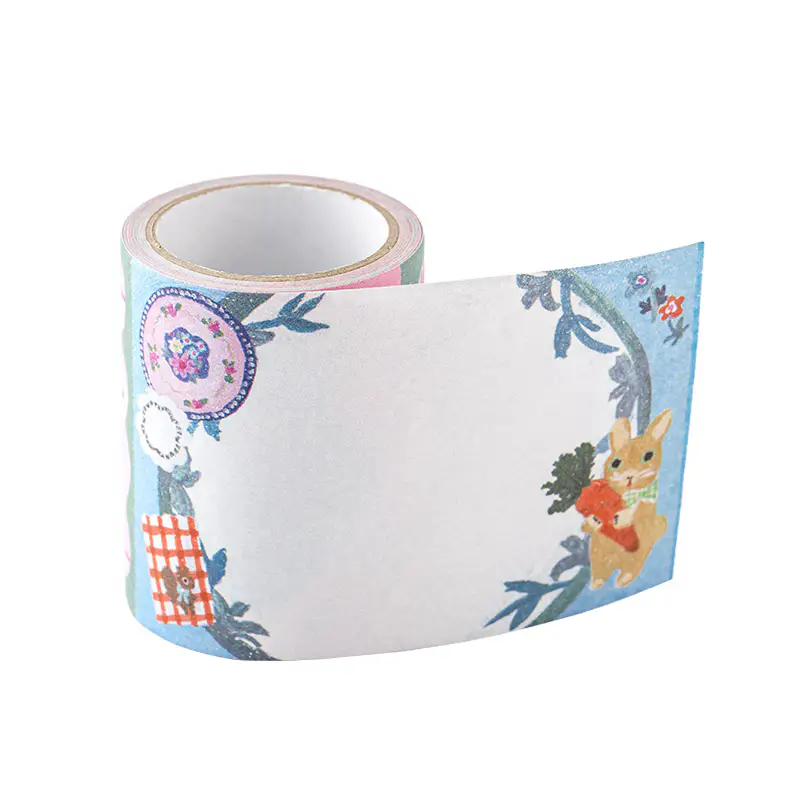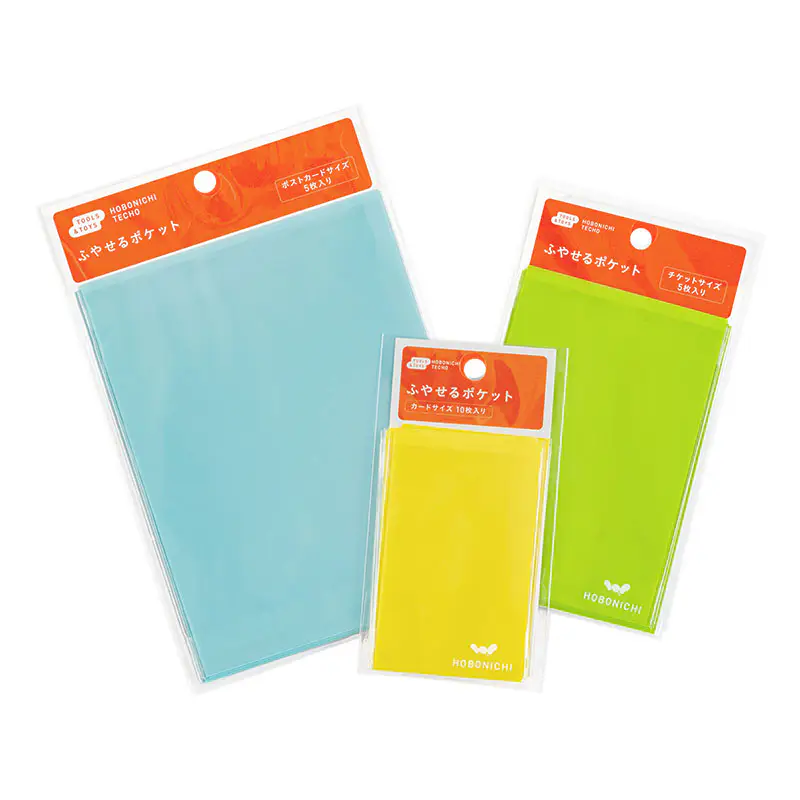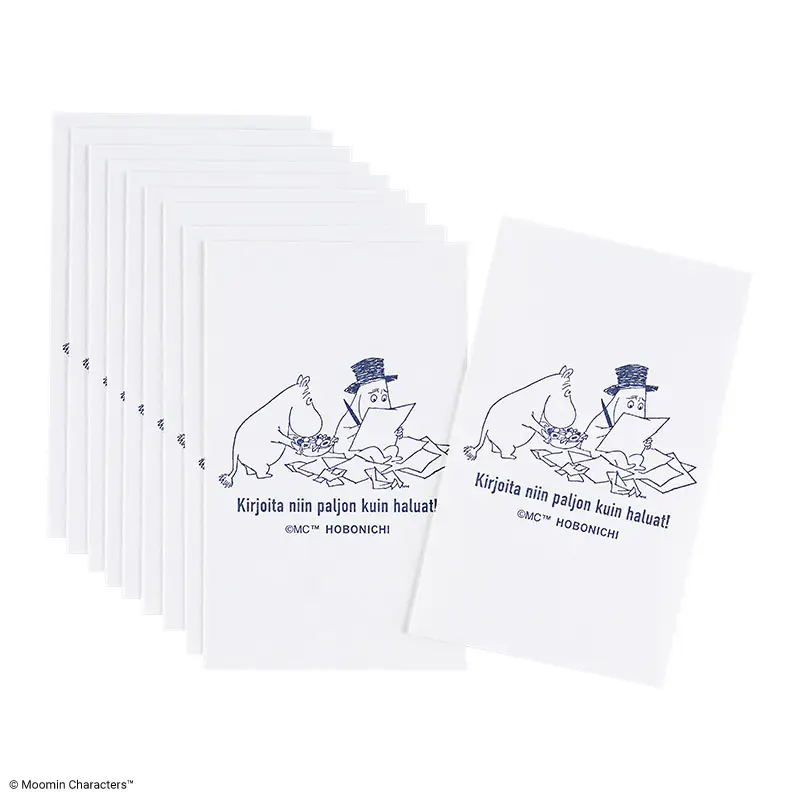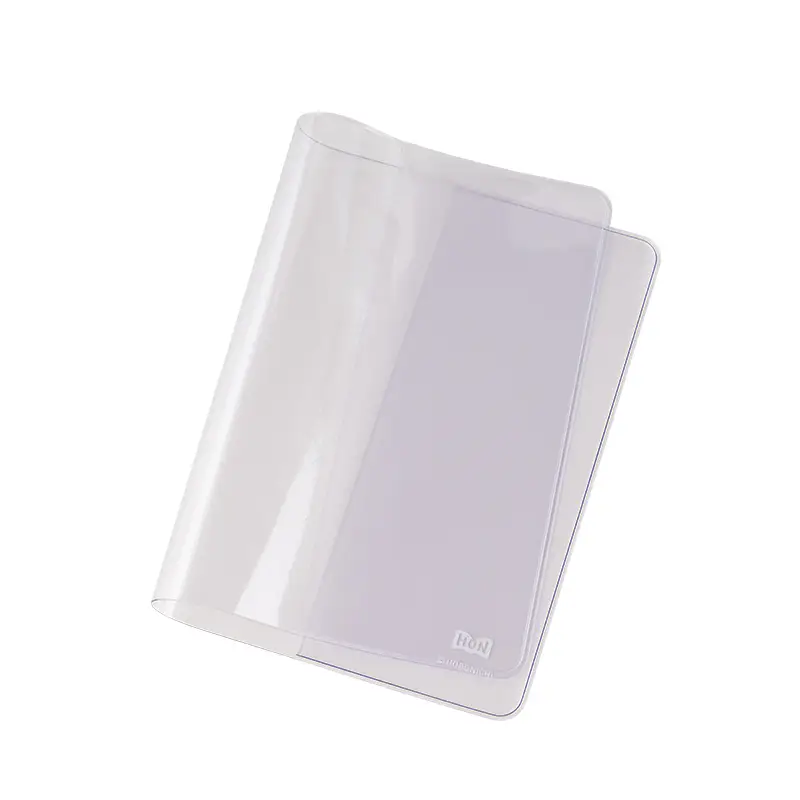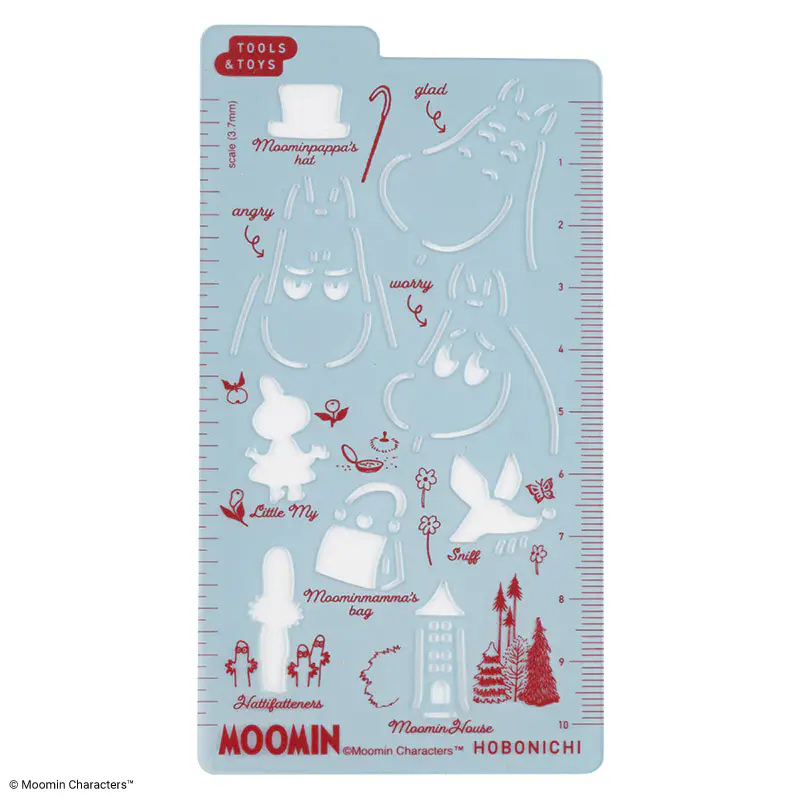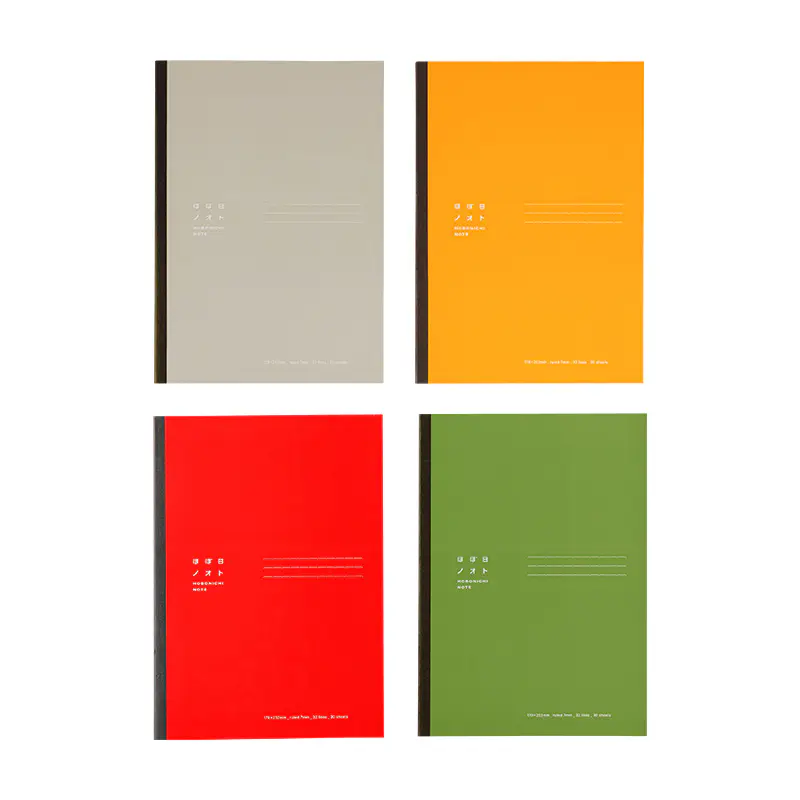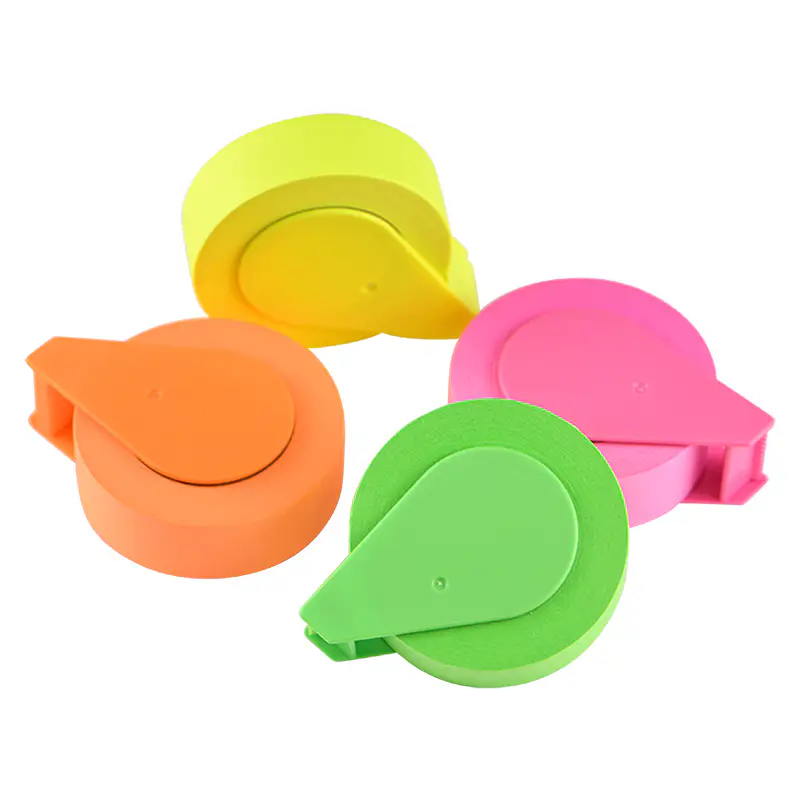TolightA Bright YearWeeks Hardcover Book / Weekly Horizontal / ENG or JPN edition / Jan or Apr start / Mon start
- 2026 New
- Jan / Apr Start
With the concept of “Freedom, like drawing a picture,” Tolight releases new collections each season featuring the designer’s own drawings as a focal point. This Weeks was made in collaboration with Tolight.
The cover features a bold layout of fresh, vibrant flowers painted in acrylic. The delicate yet distinct brush strokes of the painting, as well as the depth of the colors express the inherent vitality of plants. To make the beauty of the flowers stand out, the cover has a simple design without the year printed onto it. A Weeks that lets you experience the feeling of carrying a bunch of flowers with you anywhere you go.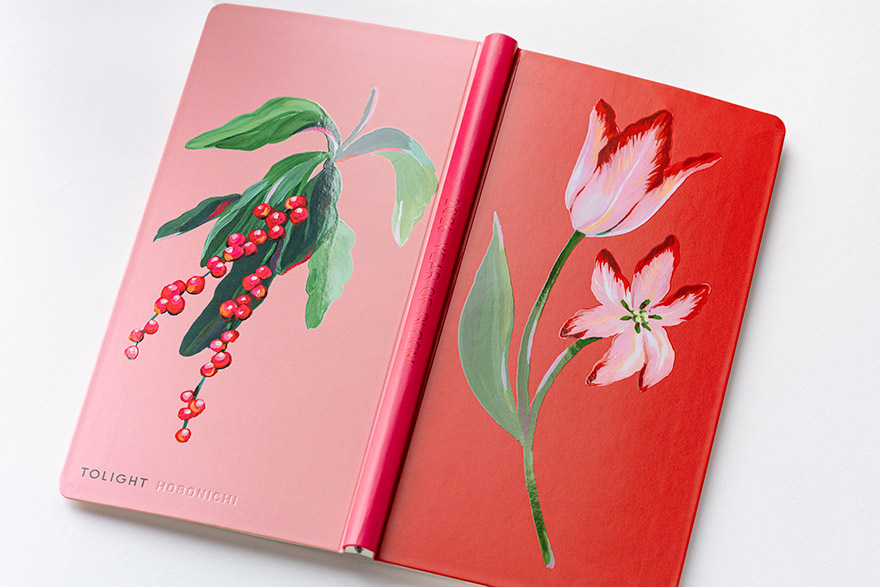
The drawings of the flowers were specifically made for the Hobonichi Techo. The front showcases brightly blooming tulips, while the back has an arrangement of flowers inspired by nandinas and coralberries—both seen as symbols of good fortune. Another key feature is that the three sides of the Weeks all have a different background color, with the front being red, the back pink and the spine hot pink.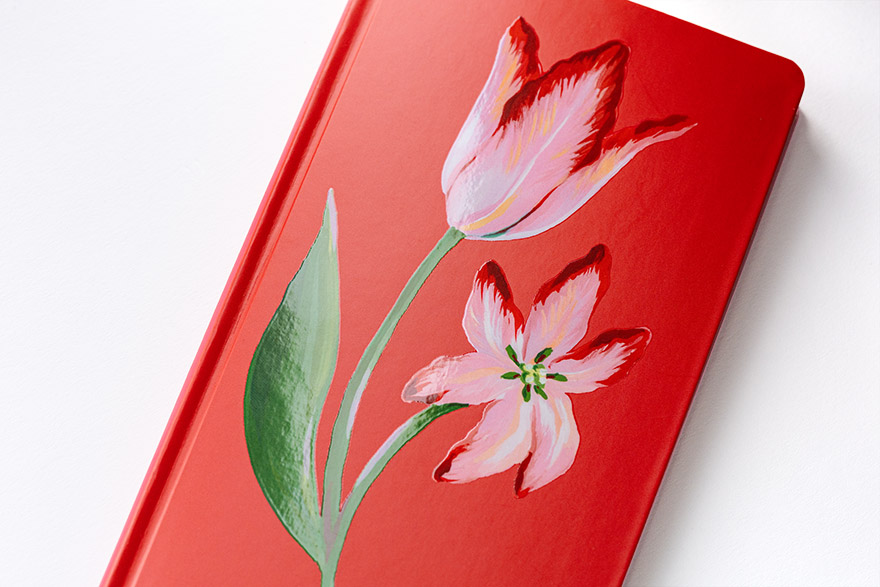
While the cover is matte, the flowers are silk screen printed onto it for a glossy finish, making for a pleasant contrast in both look and texture.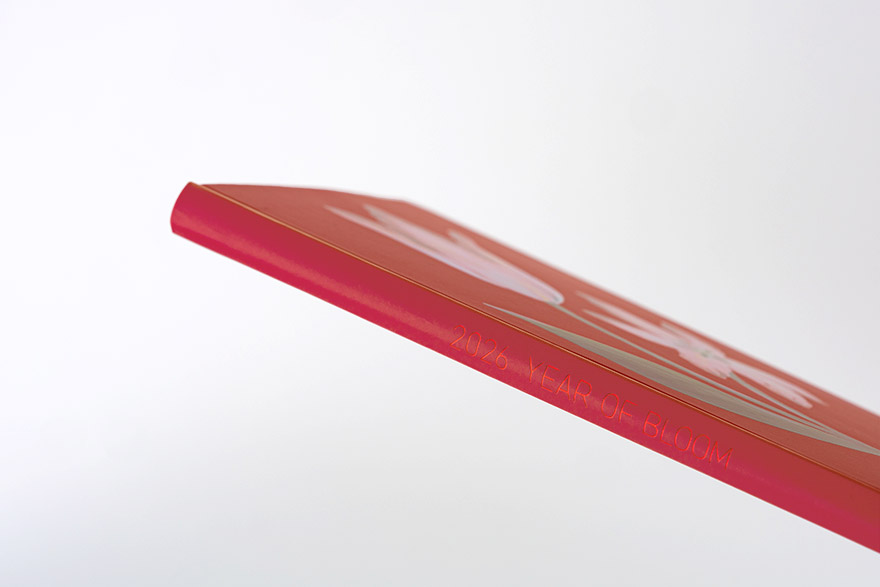
The spine is pressed in red foil with the text “2026 YEAR OF BLOOM,” and conveys the wish for this year to be bright and beautiful like a blooming flower.
This is a Weeks that will lift your mood in an instant. It will surely add vibrant color to your new chapter in life.

When you order this Hobonichi Techo Weeks, you’ll receive a clear, adhesive corner pocket you can stick anywhere you like.
The book uses thin and light yet durable Tomoe River paper. It's characterized by its ability to hold ink well and provide a smooth writing experience.
The Weeks book has space for writing in plans or journal entries, and it also has plenty of grid paper memo pages in the back. The back of the book contains bonus pages, including Memories 2026 and 12 Switches to Help You Focus.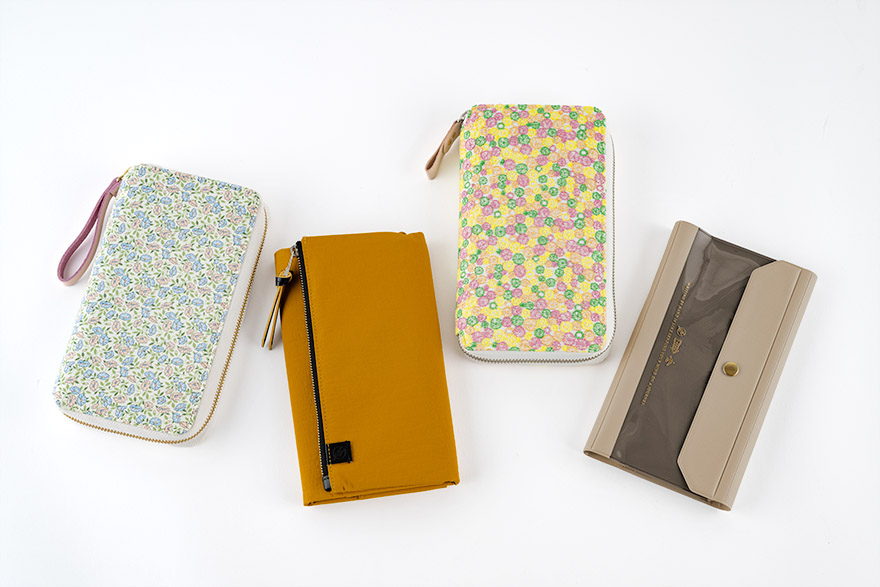
If you’d like storage space or a way to change up the look of your Weeks book, you can customize your book by pairing it with a Weeks cover.
See Weeks cover lineup
About Tolight
A brand by the designer Mei Aoyama. The name “Tolight” comes from the words “try” and “light,” and expresses the desire to keep moving towards the light and continue facing challenges head on. With the concept of freedom as one has when drawing, the brand releases products with a focus on apparel that features drawings by the designer herself. Unique pieces like original-design vintage lace shirts and hand-painted second-hand garments are generating buzz. In addition to collaborating with companies to design collections, the brand also offers window paintings and interior and visual design.
https://www.tolight-official.com/
Introduction to the Tolight series products
(Hobonichi Techo 2026 lineup)
Staff List
- Photographer
- Styled Images: Nobuki Kawaharazaki / Product Detail: Hiroyuki Oe
- Stylist
- Satomi Kamino
Discover more (Techo)
![]()
- ¥8,360 - ¥9,350
- ¥5,940
![]()
- ¥10,560 - ¥12,210
- ¥7,040
![]()
- ¥3,190 - ¥3,300
![]()
- ¥2,860 - ¥2,970
![]()
- ¥3,190 - ¥3,300
![]()
- ¥2,860 - ¥2,970
![]()
- ¥3,520 - ¥3,630
![]()
- ¥3,190 - ¥3,300
![]()
- ¥4,950 - ¥5,060
![]()
- ¥3,190 - ¥3,300
![]()
- ¥3,190 - ¥3,300
![]()
- ¥3,190 - ¥3,300
Discover more (Accessories)
![]()
- ¥660
![]()
- ¥880
![]()
- ¥143 - ¥420
![]()
- ¥880
![]()
- ¥1,980
![]()
- ¥770
![]()
- ¥330 - ¥370
![]()
- ¥880
![]()
- ¥495 - ¥660
![]()
- ¥720
![]()
- ¥297 - ¥1,485
![]()
- ¥484
Specifications*Specifications may vary slightly
Size H: 188 x W: 94 x T: 11 mm / H: 7.4" x W: 3.7" x T: 0.4" Weight Approx. 135 g Main material Matte paper (PP coated) / Paper Compatible Techo Covers
- Weeks Book (Japanese / April Start)
Language Japanese Pages 240 pages Paper Type / Binding Thin, light Tomoe River paper that is smooth to write on and designed for planners / Stitch-binding Graph Paper Size 3.55 mm
*Monthly calendar pages are 3.4 mmStart of Week Monday-start week Yearly Calendar 2025, 2026, 2027 Yearly Index Apr. 2026 - Mar. 2027 (2 pages) Monthly Calendar Mar. 2026 - Apr. 2027 (28 pages) Daily Quotes One per week (Japanese) Weekly Pages Feb. 23, 2026 - Apr. 4, 2027 (116 pages)
*All weekly pages include quotes.Graph Paper 73 pages Bonus Pages 365 Days Check-Off Sheet / Using Things around You to Measure Size / My 100 / Memories 2026 / 12 Switches to Help You Focus / Solar Terms / Emergency Preparedness / Age Table / Conversion Chart / Getting the most of Hobonichi / Contact List / Personal Notes Listed Information Week of the year / Rokuyo (traditional Japanese calendar) / Solar terms / Japanese holidays / Moon phase (weekly pages include every phase, monthly calendars only include full and new moon) Other See the Exploring Each Type page for more details
- Weeks Book (English / January Start)
Language English Pages 240 pages Paper Type / Binding Thin, light Tomoe River paper that is smooth to write on and designed for planners / Stitch-binding Graph Paper Size 3.55 mm
*Monthly calendar pages are 3.4 mmStart of Week Monday-start week Yearly Calendar 2025, 2026, 2027 Yearly Index Jan. - Dec. 2026 (2 pages) Monthly Calendar Dec. 2025 - Mar. 2027 (32 pages) Daily Quotes One per week (English) Weekly Pages Dec. 1, 2025 - Jan. 3, 2027 (114 pages)
*All weekly pages include quotes.Graph Paper 75 pages Bonus Pages Useful Abbreviations / Using Things around You to Measure Size / Favorites / My 100 / Memories 2026 / 12 Switches to Help You Focus / 365 Days Check-Off Sheet / Addresses / Personal Notes Listed Information Week of the year / Moon phase (weekly pages include every phase, monthly calendars only include full and new moon) Other See the Exploring Each Type page for more details
- Weeks Book (Japanese / January Start)
Language Japanese Pages 240 pages Paper Type / Binding Thin, light Tomoe River paper that is smooth to write on and designed for planners / Stitch-binding Graph Paper Size 3.55 mm
*Monthly calendar pages are 3.4 mmStart of Week Monday-start week Yearly Calendar 2025, 2026, 2027 Yearly Index Jan. - Dec. 2026 (2 pages) Monthly Calendar Dec. 2025 - Mar. 2027 (32 pages) Daily Quotes One per week (Japanese) Weekly Pages Dec. 1, 2025 - Jan. 3, 2027 (114 pages)
*All weekly pages include quotes.Graph Paper 71 pages Bonus Pages 365 Days Check-Off Sheet / Using Things around You to Measure Size / My 100 / Memories 2026 / 12 Switches to Help You Focus / Solar Terms / Emergency Preparedness / Age Table / Conversion Chart / Getting the most of Hobonichi / Contact List / Personal Notes Listed Information Week of the year / Rokuyo (traditional Japanese calendar) / Solar terms / Japanese holidays / Moon phase (weekly pages include every phase, monthly calendars only include full and new moon) Other See the Exploring Each Type page for more details
User recommendations
If you’ve used any of these products, we welcome your notes on what you like about them or what led you to buy them so we can share it with customers who are currently considering these products. We’d also love to welcome comments from customers who purchased their techo outside the Hobonichi Store or received their book as a gift.
Please Read Before You Buy
We’ve compiled a list of warnings, potential issues, and tips to keep in mind for this particular product. Additionally, the color of the product may be slightly different in actuality than compared to how it appeared on a computer or smartphone screen.
- Press marks or shines may appear on the corners
You may notice press marks, slight whitening, or a glossy finish on the corners of the front and back covers. These are unavoidable results of the binding process.
- About the paper used (techo)
The Tomoe River paper designed for planners is known for its thinness and smooth writing surface. However, depending on the type and amount of ink or pen used—as well as environmental conditions—some ink may bleed through or take longer to dry. We recommend testing your pens on an inconspicuous area first, or using a pencil board or blotting paper for best results.
